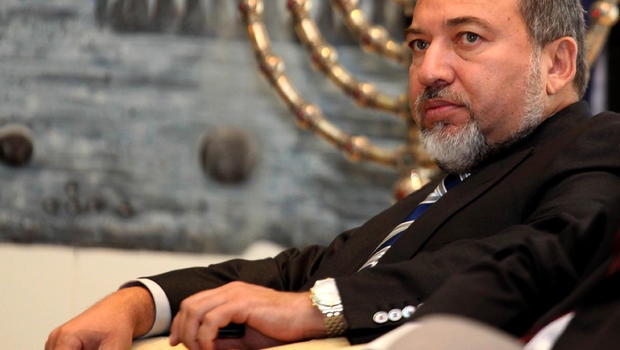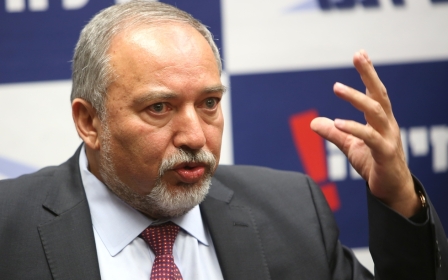Avigdor Lieberman: From nightclub bouncer to Israel's new doorman

Avigdor Lieberman, who is set to become Israel's new defence minister, worked as a nightclub bouncer as a young man before embarking on a political career marked by anti-Palestinian tirades and strident populism.
The leader of the nationalist party Yisrael Beitenu (Israel Is Our Home) is to replace Moshe Yaalon, who resigned on Friday, saying extremists had taken over the country.
The deal to expand Prime Minister Benjamin Netanyahu's coalition announced on Wednesday must still be approved by parliament, which is expected to do so.
Lieberman, loathed by the Palestinians, will be responsible for implementing Israeli policies in the occupied territories and will oversee defence for a country that lives under the near-constant threat of conflict.
His dramatic return to government comes after he rebuffed advances by Netanyahu following the 2015 election.
The two men have been bitter rivals in the past, but appeared at a ceremony together on Wednesday and vowed to work together.
The bearded and stocky Lieberman, who has previously served as foreign minister, pledged to be "balanced" and said he was committed to "responsible, reasonable policy."
He has made a number of controversial statements over the years.
In 2001, he advocated bombing the Aswan Dam in Egypt, accusing Israel's Arab neighbour of supporting a Palestinian uprising.
In 2014, he called Palestinian president Mahmoud Abbas a "diplomatic terrorist".
A year later in 2015, Lieberman said that Palestinian Israeli citizens disloyal to the country "deserve to have their heads chopped off with an axe".
That same year he called Turkish leader Recep Tayyip Erdogan an "anti-Semitic neighbourhood bully".
Earlier this year Lieberman accused some Arab members of the Israeli parliament of being "representatives of terrorist organisations".
He also said he would give Hamas's Gaza leader Ismail Haniya 48 hours to hand over two detained Israeli civilians and the bodies of soldiers killed in a 2014 war "or you're dead".
Netanyahu has not escaped his provocative comments. Lieberman once described his new boss as a "liar, cheat and a crook."
Born in the ex-Soviet republic of Moldova, Lieberman, 57, emigrated to Israel in 1978, and retains a heavy accent when speaking Hebrew.
Upon arrival, the social scientist graduate worked for a time as a nightclub bouncer and also completed his military service.
But he was not a major figure in the army and Netanyahu's Likud party recently labelled him "a man whose closest experience to a bullet whistling by his ear is a tennis ball flying by".
Lieberman started his career inside Likud and rose through the ranks to become Netanyahu's chief of staff during the premier's first term from 1996 to 1999.
That year, he created Yisrael Beitenu, capturing the support of many of the more than one million Jews who emigrated to Israel from the former Soviet Union, an electoral base that has expanded considerably since.
Over the years Lieberman has held several portfolios, including foreign minister from 2009 to 2012, then again from 2013-2015.
As Israel's top diplomat, he was the bane of the European Union, accusing it of following a pro-Palestinian policy hostile to Jews - often invoking the Holocaust.
These statements, often mixed with bits of humour, earned him many fans in Israel, while critics accused him of racism.
His image was tainted by a corruption scandal that saw him leave the government in 2012, but he was cleared of the charges and a year later he returned.
A staunchly secular nationalist and father of three, Lieberman has suggested he supports civil marriages, currently banned in Israel.
He says he is not a supporter of the idea of "Greater Israel" - the Biblical boundaries that include the West Bank and which settlers advocate - but he lives in Nokdim, a Jewish settlement near Bethlehem.
While he considers peace with the Palestinians unrealistic, he has said he is willing to try.
New MEE newsletter: Jerusalem Dispatch
Sign up to get the latest insights and analysis on Israel-Palestine, alongside Turkey Unpacked and other MEE newsletters
Middle East Eye delivers independent and unrivalled coverage and analysis of the Middle East, North Africa and beyond. To learn more about republishing this content and the associated fees, please fill out this form. More about MEE can be found here.




